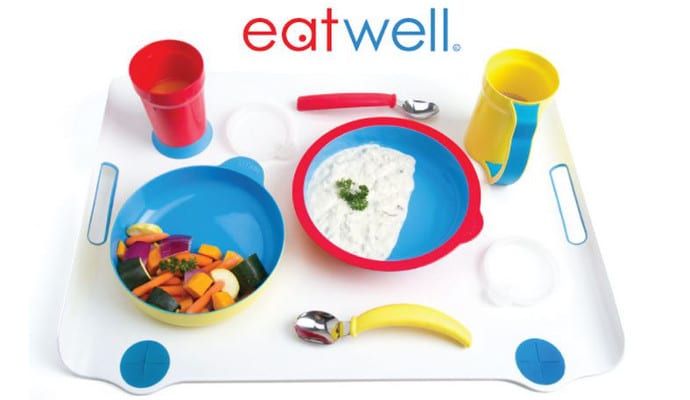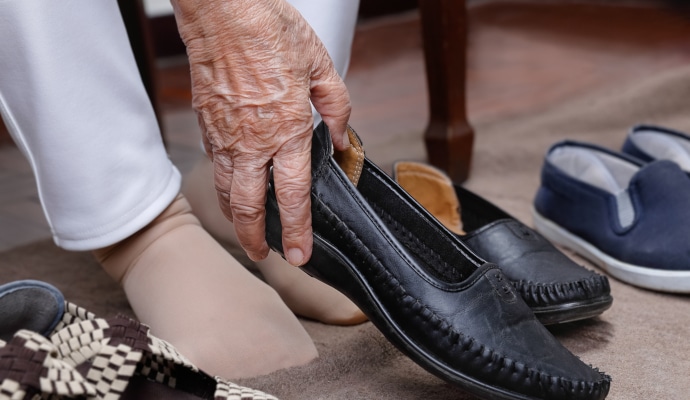For seniors with Alzheimer's or dementia, mealtime can become frustrating and overwhelming as coordination and cognitive challenges make using regular utensils difficult. Thankfully, innovative adaptive utensils for Alzheimer's can help restore independence and dignity at the table.
These thoughtfully designed tools compensate for tremors, poor motor control, and confusion, making eating easier and safer. Discover how the proper utensils can transform mealtime from a struggle into a more enjoyable, nourishing experience for your loved one.

Alzheimer's Disease Can Make Eating a Challenge
Alzheimer’s, dementia, and other cognitive impairments can make eating and drinking a challenge for older adults. Coordination issues, hand tremors, or confusion caused by these conditions can make holding utensils or getting food into the mouth nearly impossible.
One solution is to get special utensils and tableware that allow seniors to eat independently. This might even encourage them to eat more, making mealtime easier and more enjoyable.
A company called Eatwell specifically designed tableware to:
- Increase food and drink intake for better health and nutrition
- Maintain dignity and independence during meals
- Reduce the burden on caregivers
Eatwell Utensils for Alzheimer's Are Helpful Tools
These red or yellow tableware sets have unique features to help those with cognitive or motor impairments.

Yellow tableware set
- For solid foods
- Includes a specially designed bowl, spoon, and mug with a lid
Red tableware set
- For soups and liquid foods
- Includes specially designed bowl, spoon, and anti-tipping cup with lid
The inspiration behind Eatwell
Eatwell’s founder was inspired by her late grandmother, who had Alzheimer’s, and her experience volunteering at senior care centers. Hear her story in the 4-minute video below.
VIDEO: The Inspiration Behind Eatwell Utensils for Alzheimer's
Eatwell Utensils for Alzheimer's Have Useful Features

The bowl
- A slanted basin that collects food on one side
- One right-angled side provides a surface to scoop against
- The handle gives extra space to hold the bowl without touching the food inside
- Brightly colored to stimulate the appetite
- Interior color makes food easier to see and stand out against the bowl

The spoon
- Available in right and left-handed versions
- Exactly match the curvature of the bowl for easy and efficient scooping
- Handles are curved to fit the natural alignment of a person's hand

The mug and anti-tipping cup
- The cup has a sturdy, broad base that resists tipping from short drops and bumps
- Mug has an extended handle for extra support and helps prevent tipping
- Both include a lid with a securely held straw

Extra features
- The optional tray that allows a bib, apron, or tablecloth to be attached to the edge, catching any dropped foods and keeping clothing and carpet clean
- Dishwasher safe
- Anti-slip material to prevent spills and make it easier to grip
Next Step Help your older adult eat better with an Alzheimer’s-friendly tableware set from Eatwell
Recommended for you:
- Hand Tremors: Adaptive Utensils and Eating Aids
- How to Get Someone with Dementia to Eat: 8 Expert Tips [Infographic]
- 6 Ways to Get Seniors with No Appetite to Eat
Image: Eatwell
This article contains affiliate links. For more information, see How We Make Money.
About the Author

Connie is the founder of DailyCaring.com and was a hands-on caregiver for her grandmother for 20 years. (Grandma made it to 101 years old!) She knows how challenging, overwhelming, and all-consuming caring for an older adult can be. She also understands the importance of support, especially in the form of practical solutions, valuable resources, and self-care tips.













